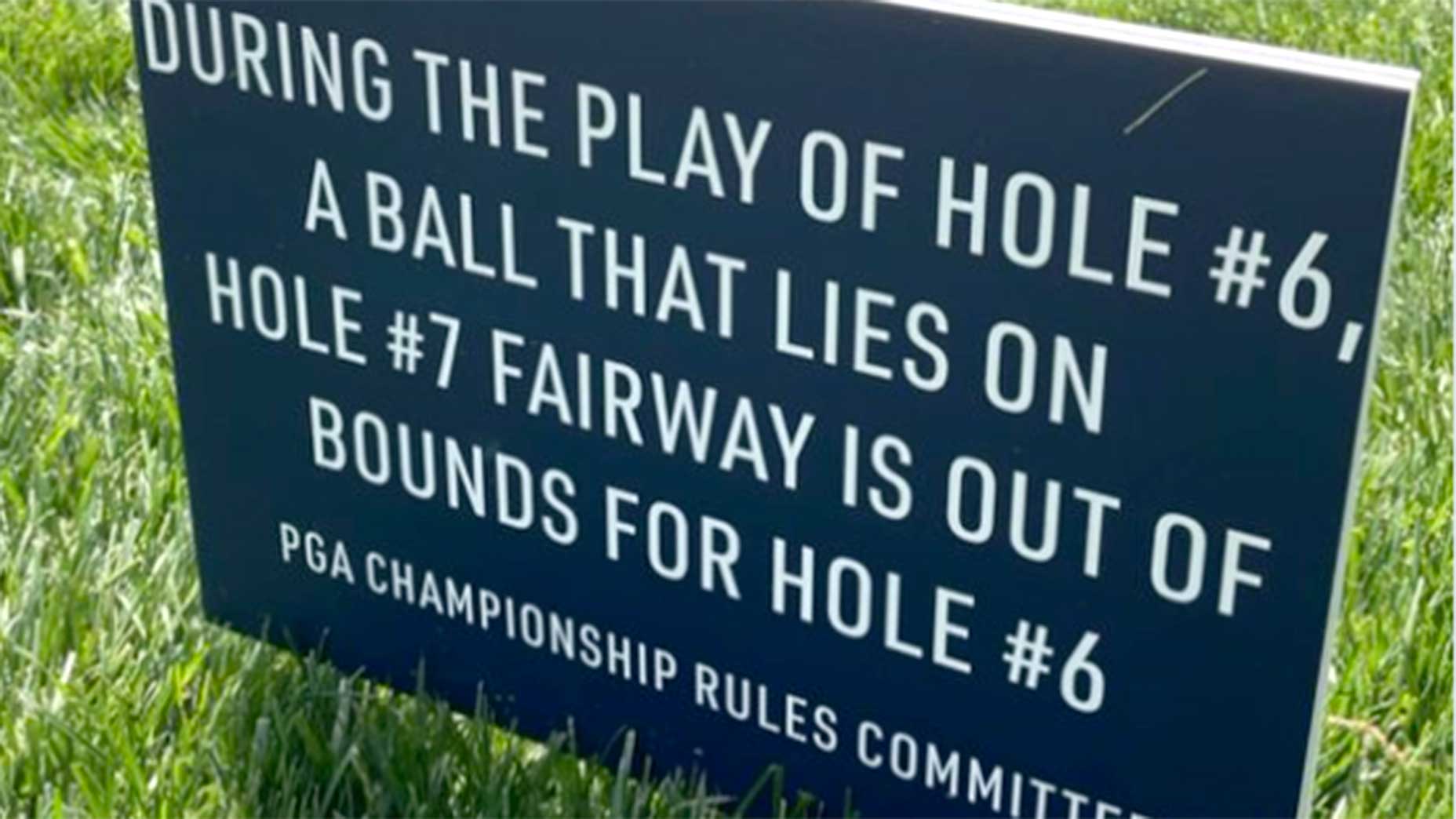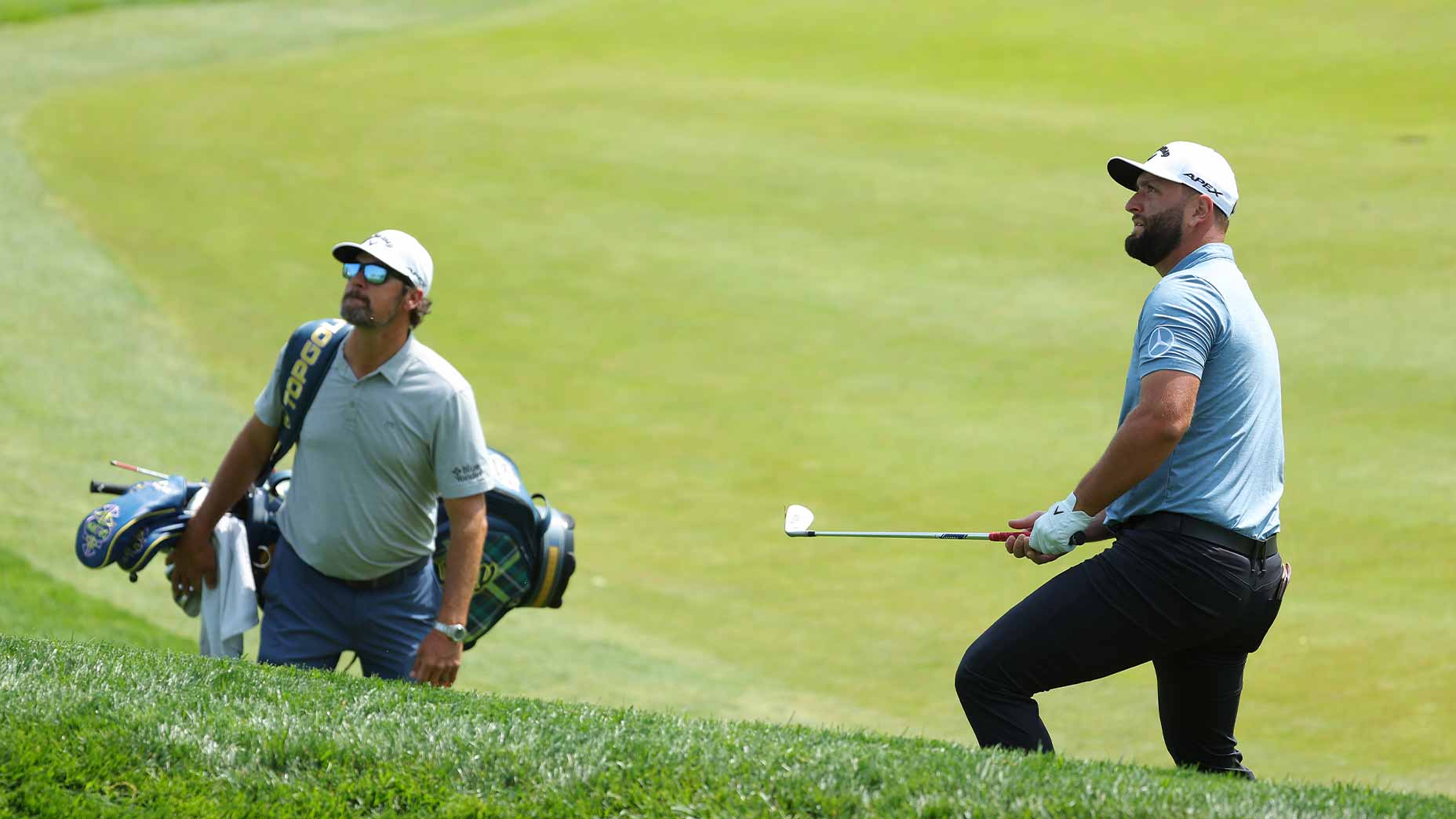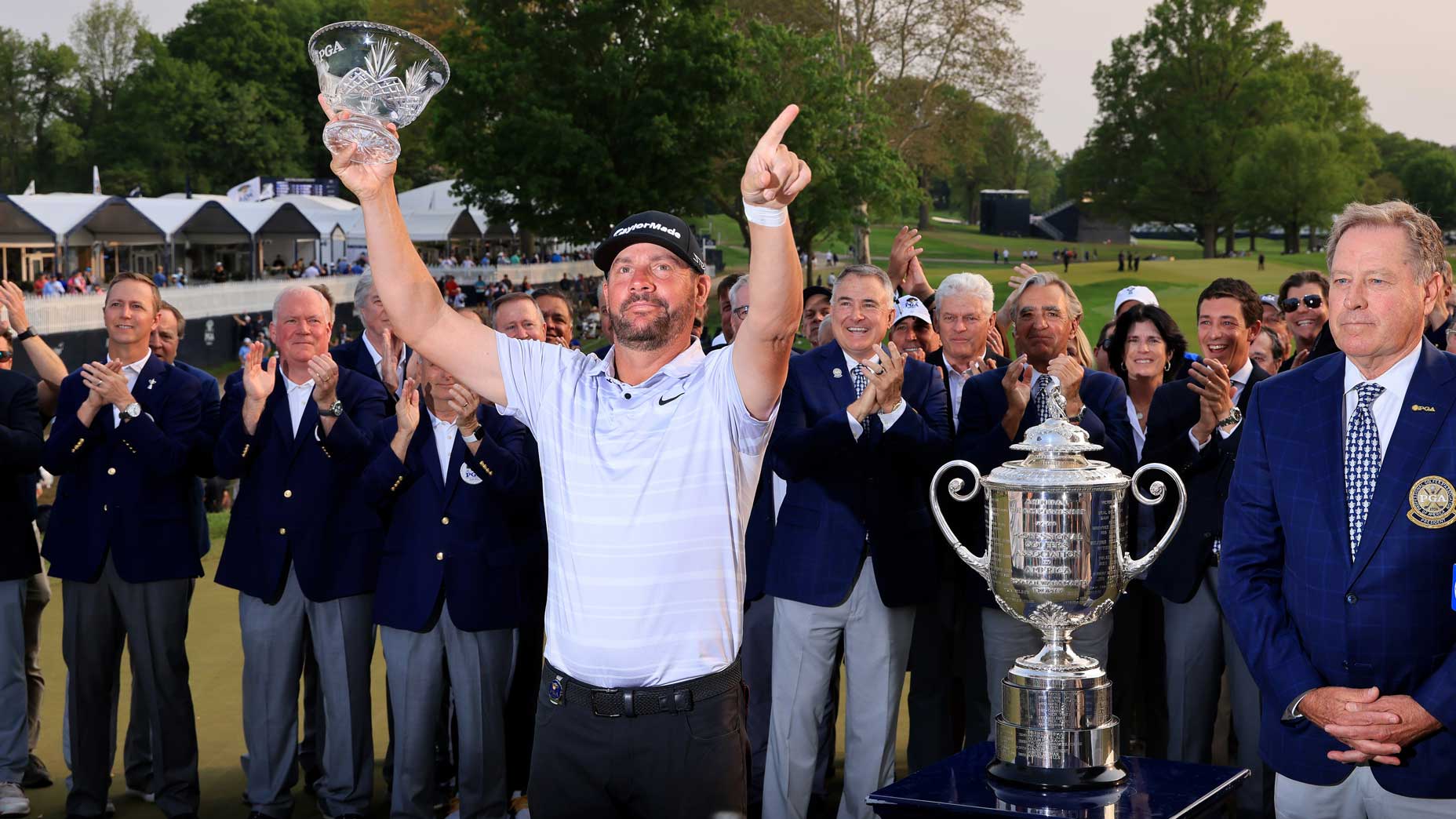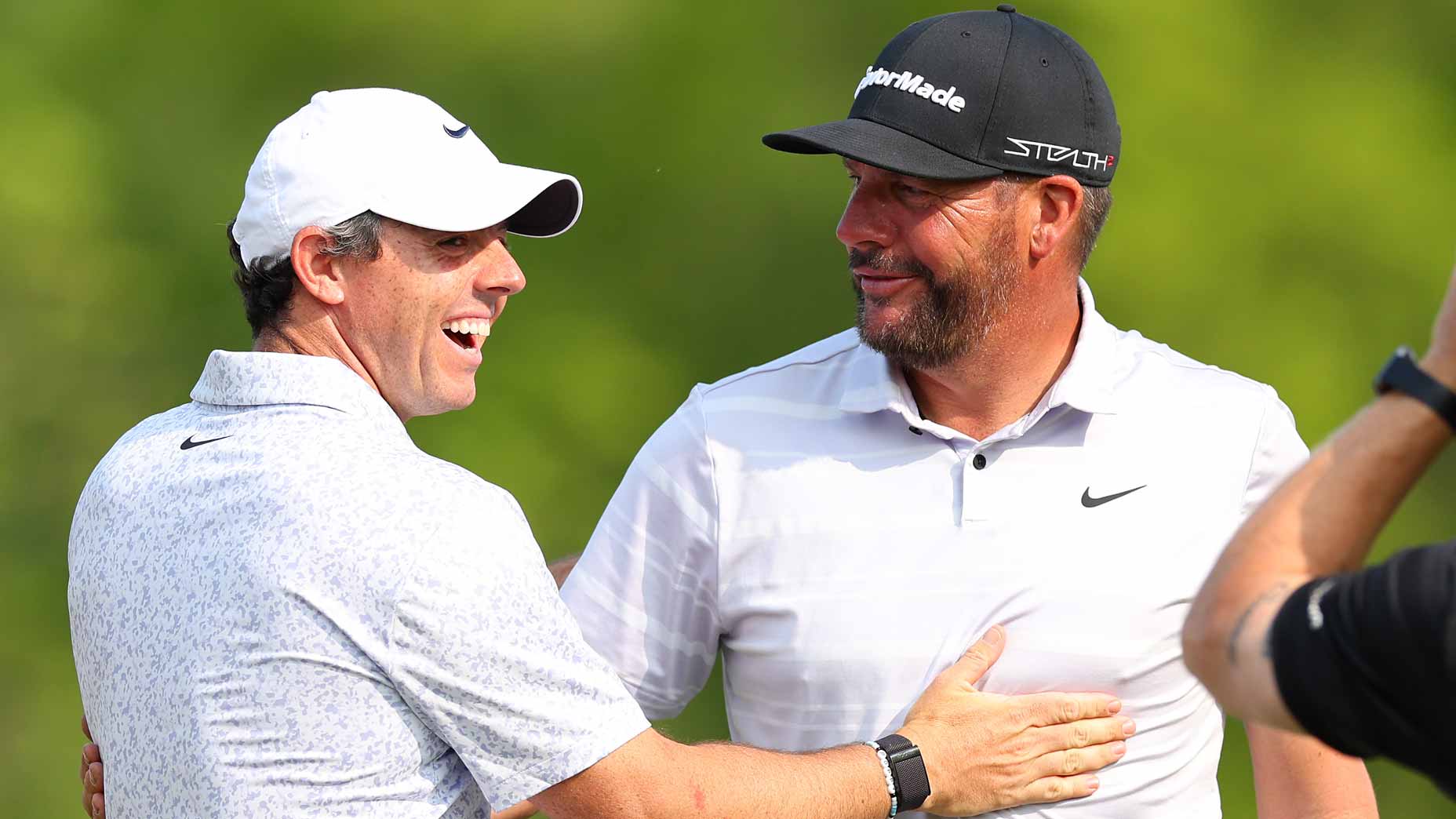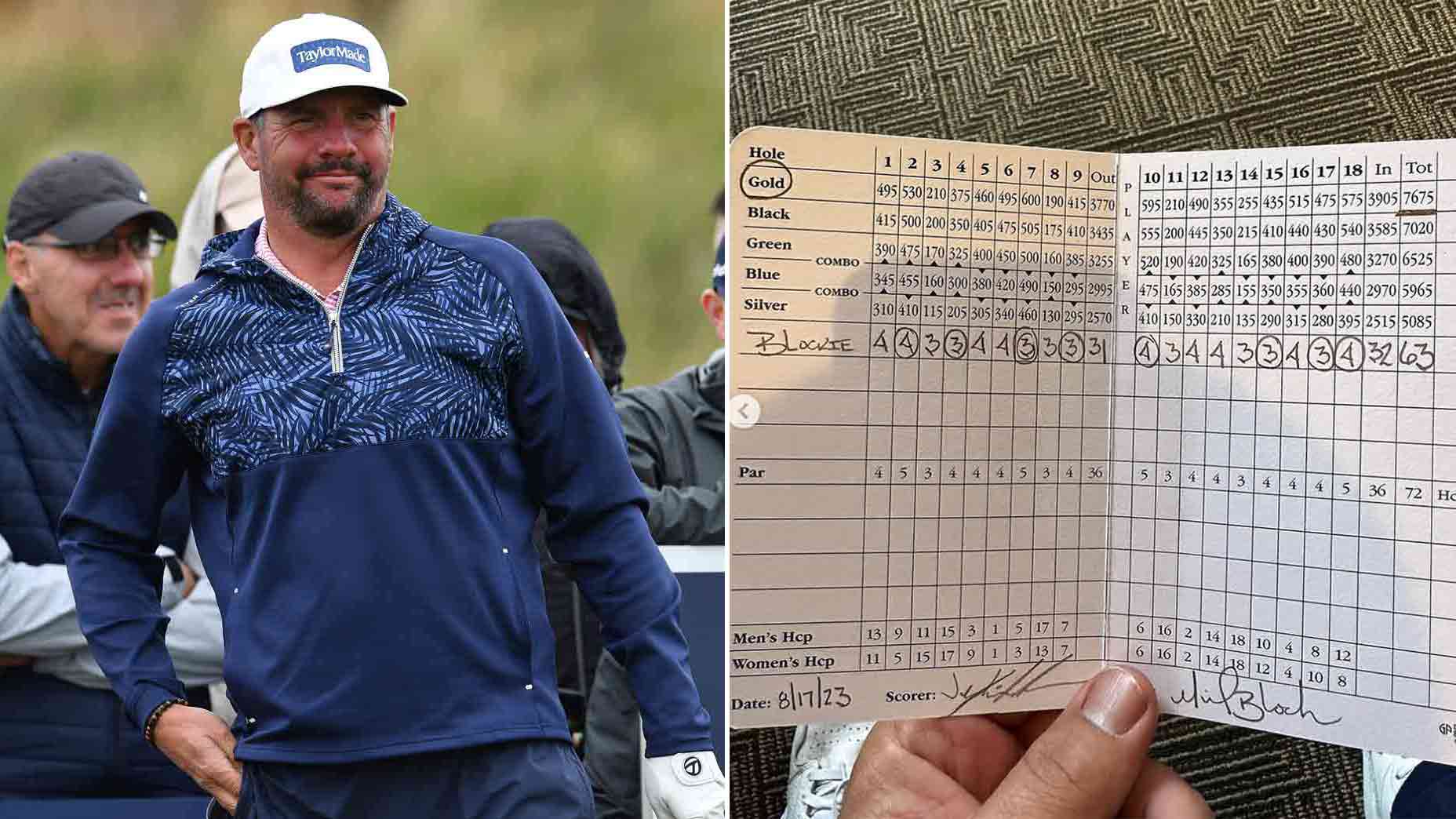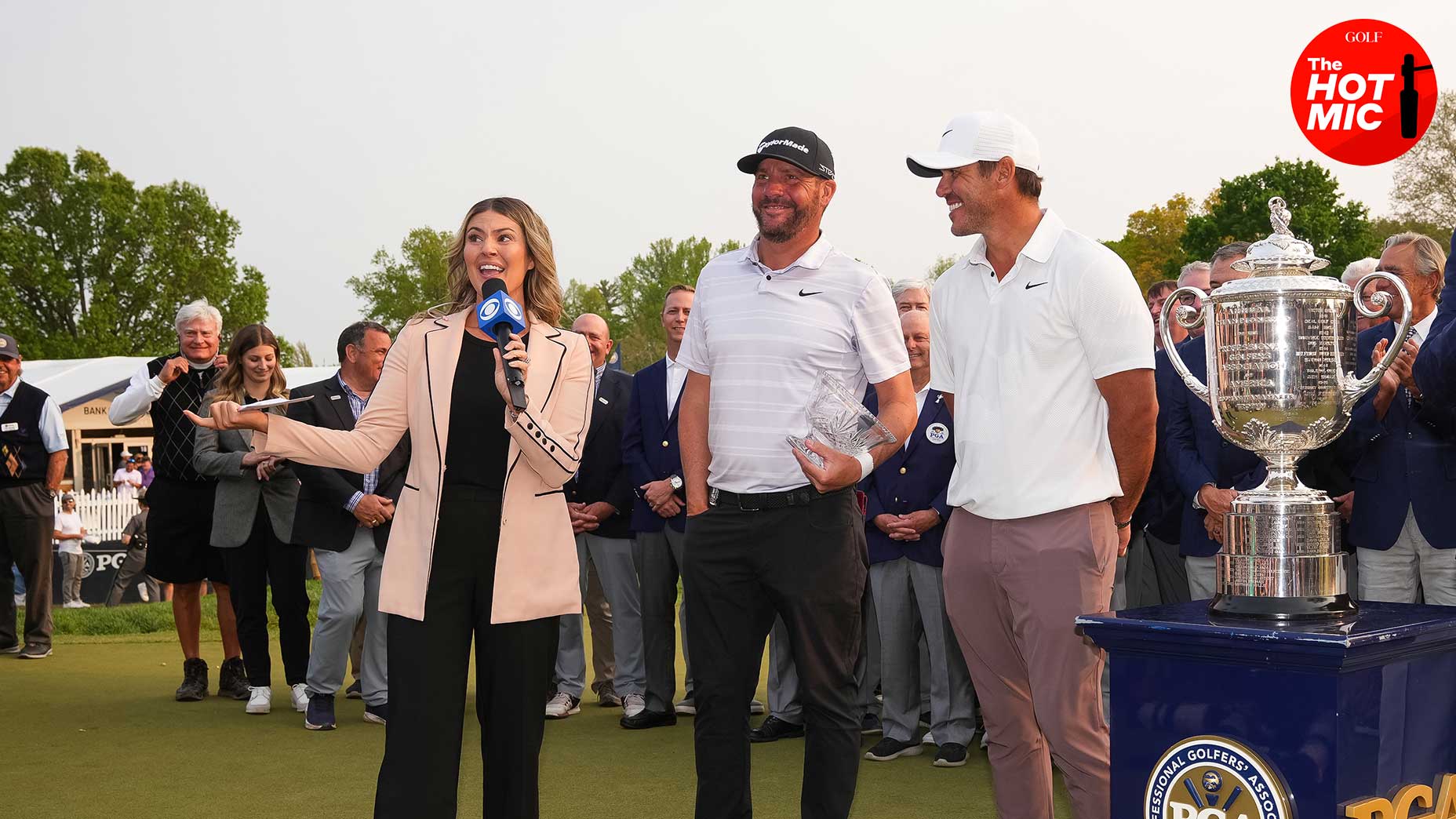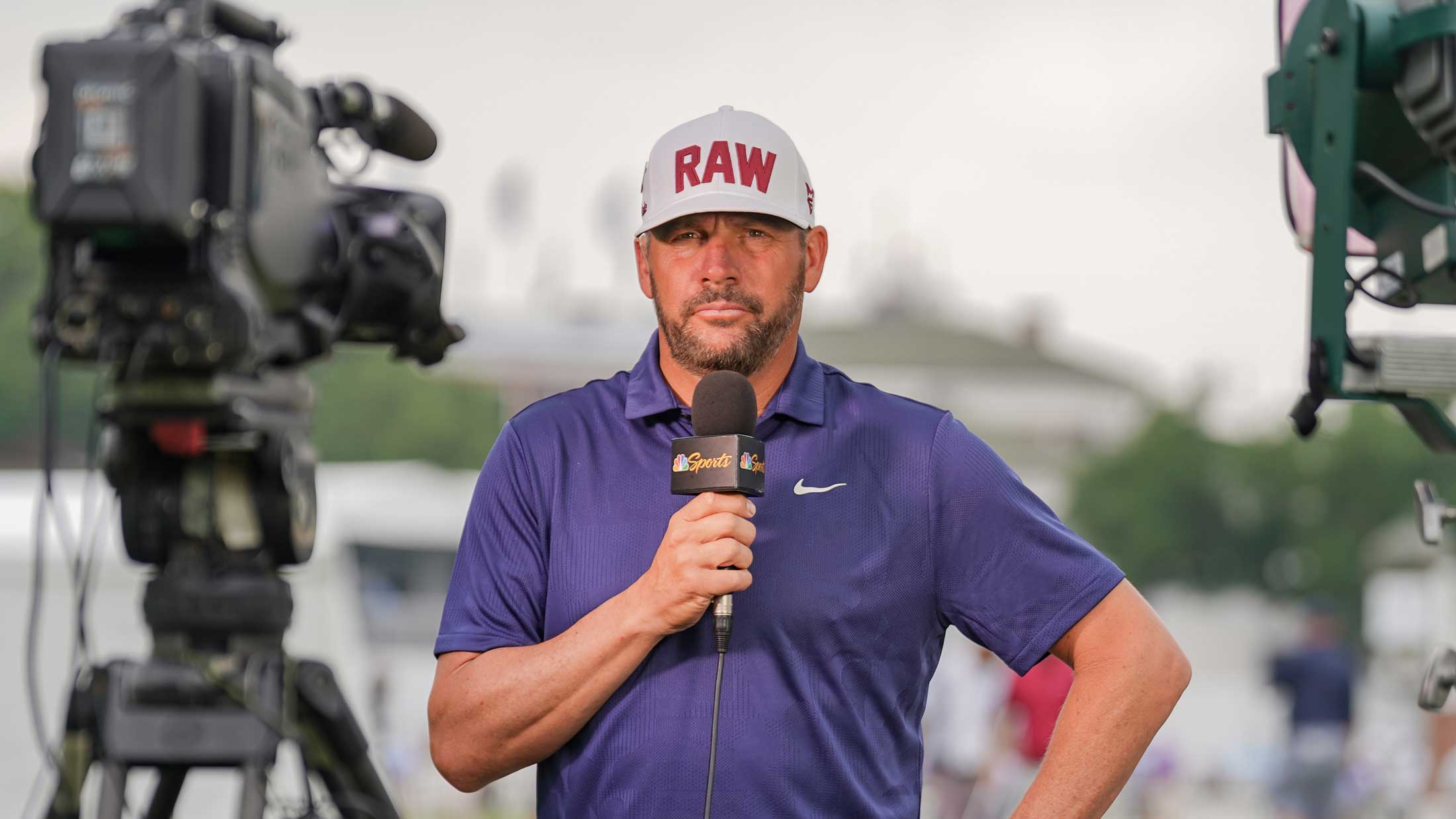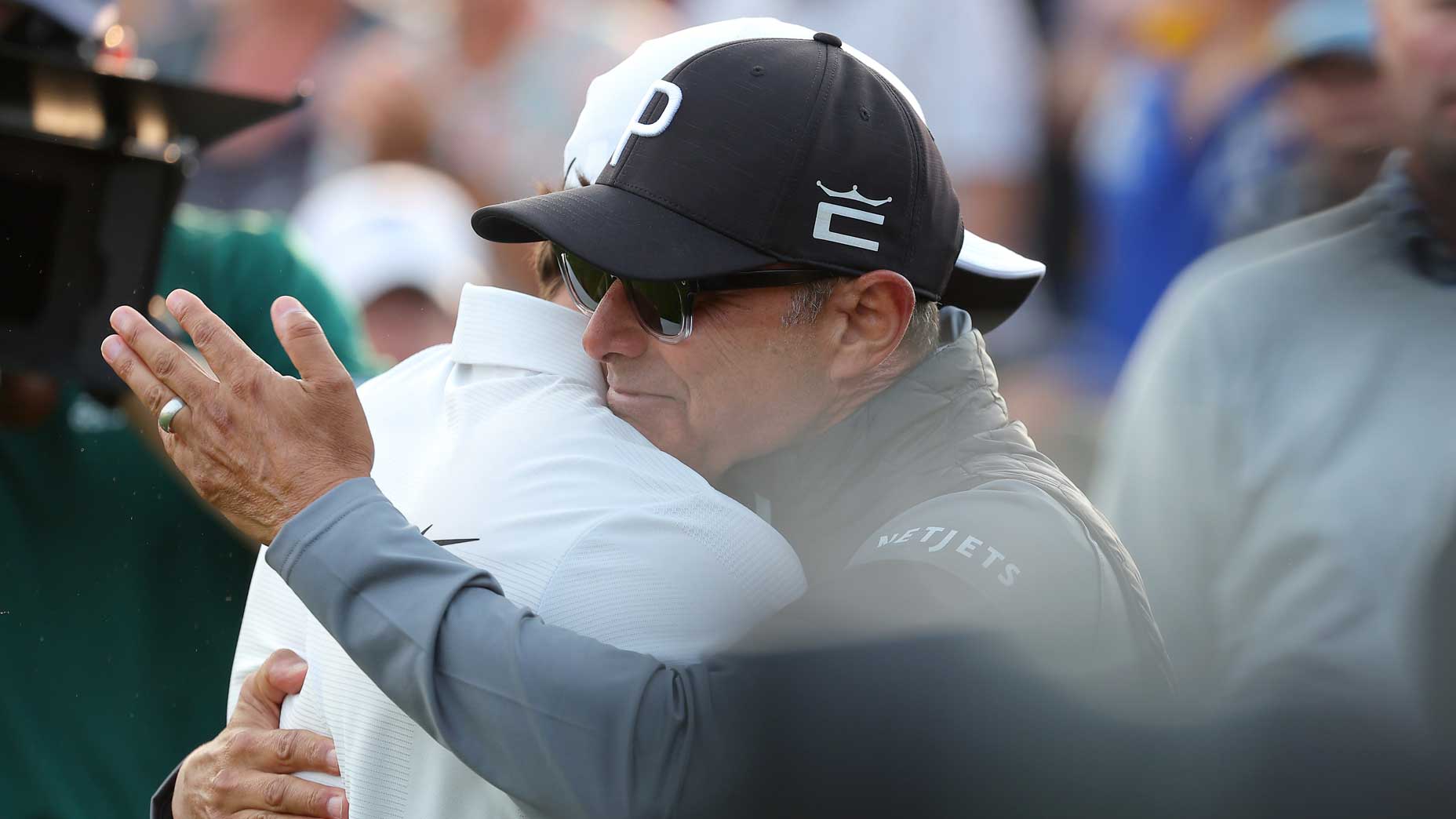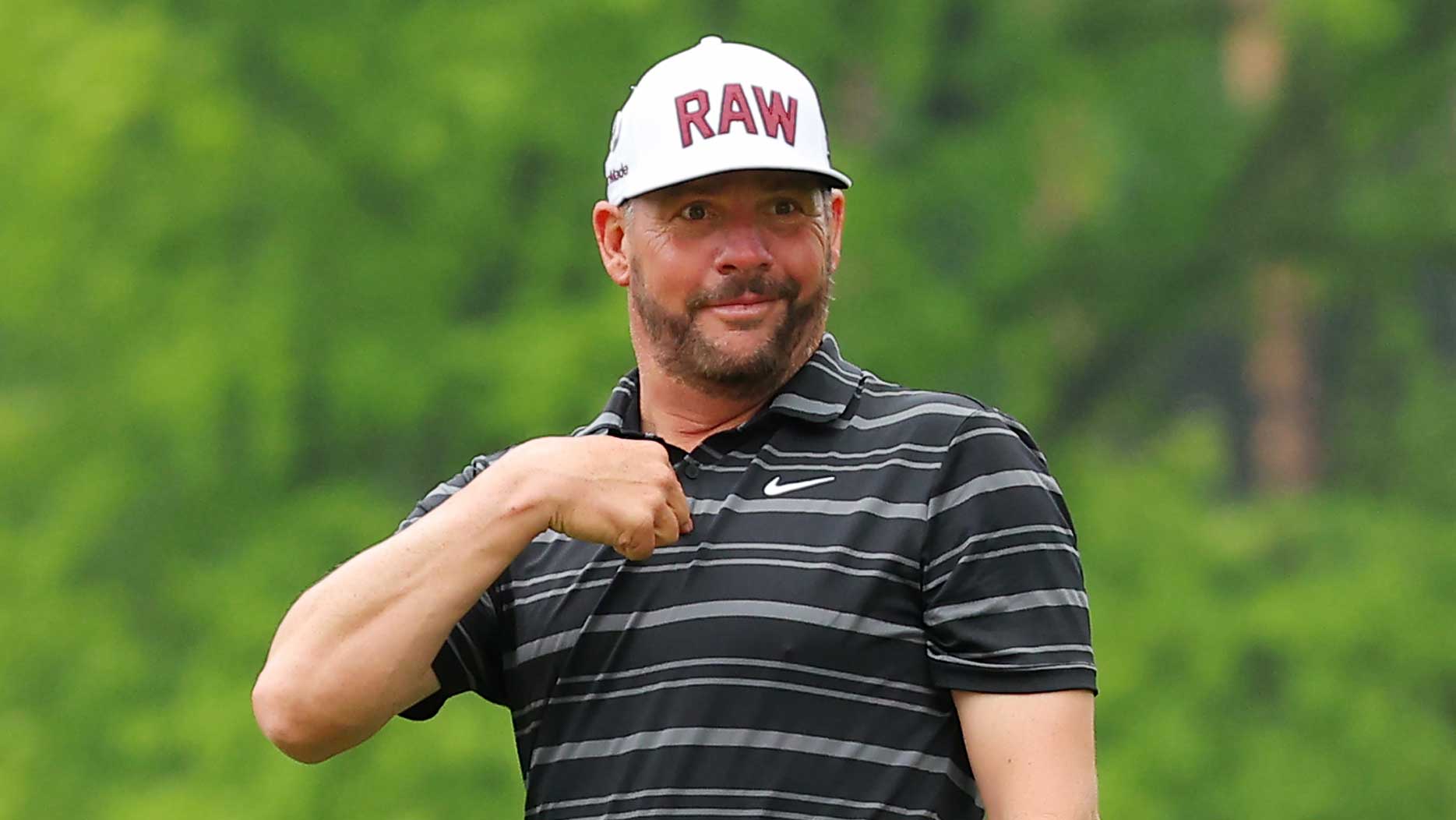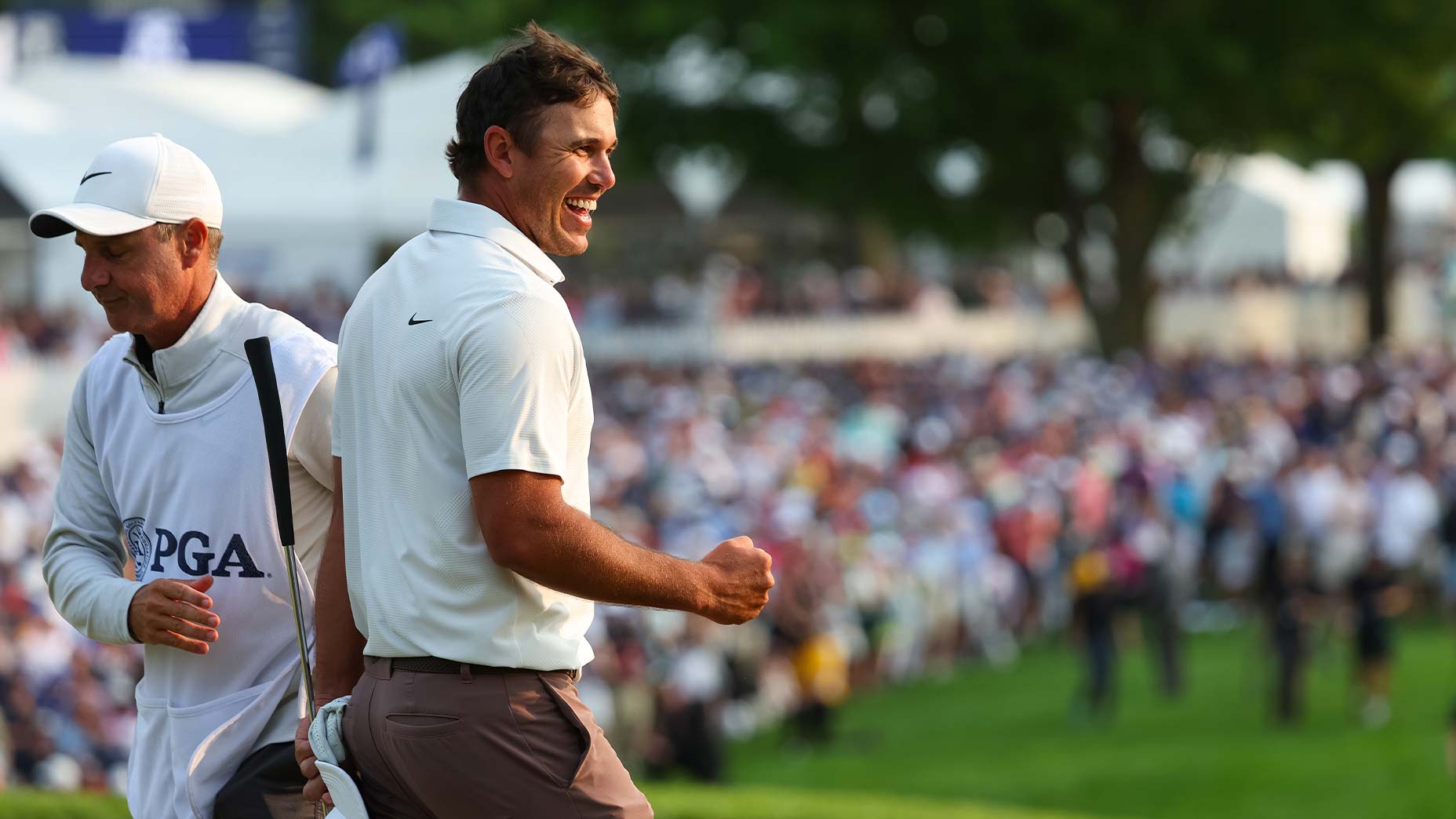‘I have so much regret’: Former PGA winner reveals costly missteps in wake of victory
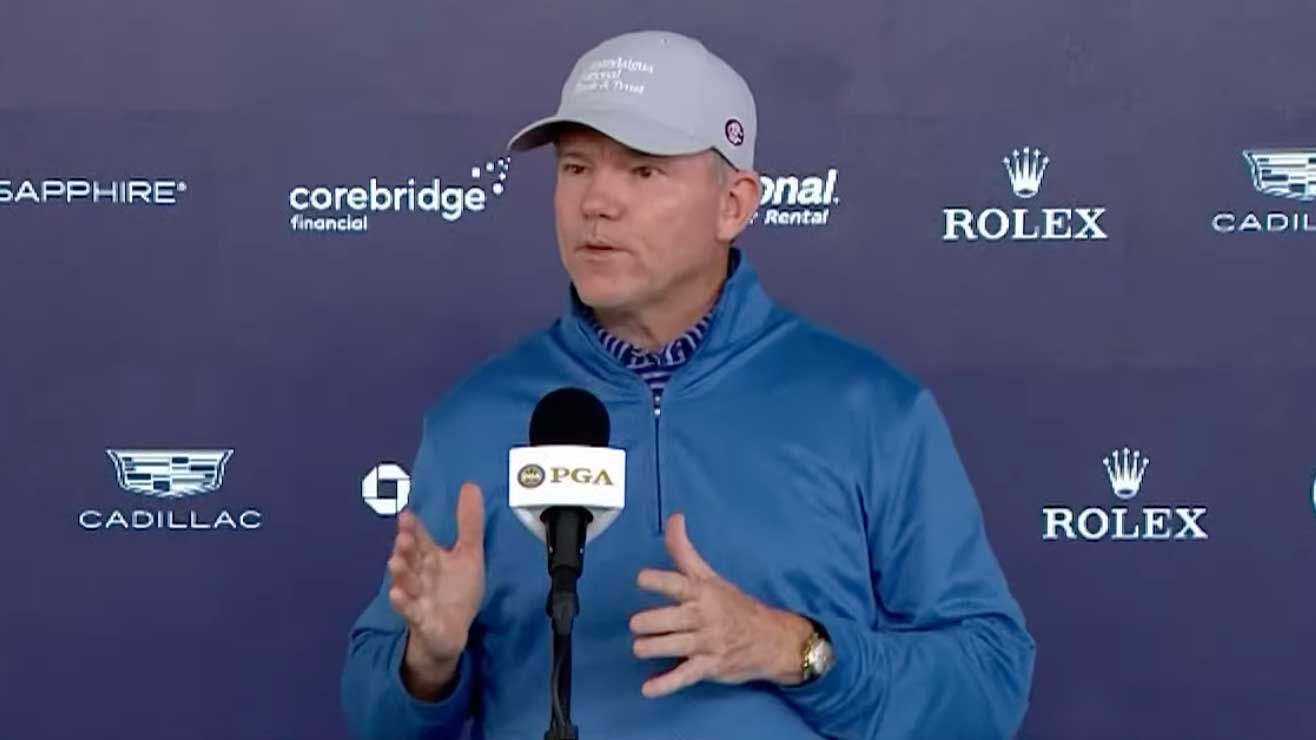
Shaun Micheel addressing the media at the PGA Championship this week.
PGA of America
If you tune into the PGA Championship this week, you’re sure to hear at least a couple of references to Shaun Micheel. That’s because the tournament is back at Oak Hill, the Donald Ross masterpiece in Western New York where 20 years ago Micheel — then the 169th-ranked player in the world — prevailed with a two-stroke win over Chad Campbell.
Micheel, whose previous six finishes before that week were T60-T24-10-MC-MC-MC, was on no one’s short list to win in Rochester. Not even his own. “I really can’t believe that this happened to me,” he said Sunday evening in 2003. “I showed up here on Tuesday to play a practice round and saw how difficult this golf course was. And after last week, I just was trying to make the cut. I know that sounds pretty simple, but really, that was my main goal, and I probably would have been happy with that.”
But then he realized the course was plenty tough for everyone else, too. If he could just keep his ball in play and avoid big numbers, he might just have a chance. A blazing-hot putter didn’t hurt the cause. “I made more long putts this week than I could really remember in a long time,” he said. That formula — paired with one of the all-time most clutch 72nd-hole approach shots, a 7-iron from 162 yards to tap-in range — delivered Micheel not only his first major title but also his first PGA Tour win, period. The new champion described his new status as simultaneously thrilling and terrifying.
“I think the fear of the unknown frightens all of us, and I certainly had that today,” he said after his win. “Even though I am a PGA champion, I don’t know what’s out there in store, I really don’t. I hope to have some guidance.”
It’s eerie looking back at those remarks nearly two decades later, because when you listen to Micheel speak today, it’s clear his instincts on that Sunday evening at Oak Hill were spot on. He had every reason to fear what was coming, because he had no clue how to handle his newfound success. When you win a major, you might get a shiny trophy and seven-figure check, but you don’t get an instruction manual.
Micheel is back in the field at Oak Hill this week, and even less of a threat to contend than he was as a long shot in 2003. He’s 54 now and has missed the cut in his last 11 PGA appearances. Micheel had shoulder surgery in 2008. He lost his full-time Tour status in 2011, and three years later required heart surgery. His son, Dade, who wasn’t born when Micheel won the PGA, is now a college freshman. “Really so much of my life has changed,” Micheel said Monday. “All of us have kind of gone through things. There’s been some good golf, some bad golf, the loss of my parents. There have been a lot of things.”
Micheel could have left it there, but he didn’t. When asked about what unexpectedly breaking through at a major can do to a player’s psyche, he spoke in generous detail about the downside of his PGA success.
“When I won that as a first, like I said, I was still in this process of learning to play high-level golf. I had gone from getting on Tour to, okay, I’ve kept my card a few years, I’ve been in contention, I’ve blown a few tournaments. Now it’s time to get in and start contending. That’s just the process that I felt like you had to go through. Then when I won one, when I won here, I didn’t know what to do with myself. I was like, how in the world do I upstage what I just have accomplished?
“I think the way that I won, kind of the walk-off moment, it’s like, what do I do. I struggled because it was the last major. I had a long time between the PGA and the Masters. There was a lot of interest in me and my story, my family, the birth of Dade. He came three months later. There was just a lot of things that hit me at once.”
All players deal with these emotions to a degree after ascending to the pinnacle of the game, but some are better equipped than others to handle the white-hot burn of the spotlight.
“My personality is not — I don’t like to be the center of attention in anything,” Micheel continued. “It just changed the way — I like to just play golf, and if I could just play invisible out there, that was better for me. I didn’t enjoy the commentary, some of the things that I heard afterwards. Several writers wrote a lot of things, and I thought, well, that’s not really what I wanted to have happen.
“I just won a golf tournament. I didn’t do anything special. It just took me a long time personally to get over some of the things, and to some extent 20 years later I’ve still struggled with that, trying to, I guess — every player wants to feel like they belong on the trophy. I’d just say I think that the guys that are on that trophy, they played for their place in the game, their legacy, and I suppose I played to keep my job. I think that’s really unfortunate. I look back, and I’m like, that’s exactly the way I played. I played like every shot was life and death and every round and every year that either I was exempt or not. That just seemed to be what I was playing for.”
If you’re thinking Micheel might have benefited from a mental-game specialist, you’re not alone.
“I have so much regret in not seeking some advice from, say, a Dr. Rotella or somebody,” Micheel said of the noted sports psychologist Bob Rotella, who has authored several books on golf. “I made a lot of mistakes. That’s one of them.”
One day, Micheel was just another under-the-radar pro, struggling to make cuts and provide for his young family; the next, his name was on a storied silver cup next to those of Woods and Nicklaus, Snead and Hagen. Over 72 holes on a bruising setup, Micheel had proven that he belonged. But he still didn’t feel like he belonged. In his mind, it was almost as if he had pulled a fast one on the golf world, and now he needed to figure out how to keep the charade going.
“I’ve tried to justify the name on the trophy,” he said. “I’ve tried to do that with my kids. They push me out the door, they encourage me to play. But when you win and then your expectations change and you become, I would say, driven by perfection, that was my undoing. I gave up some of the things that I was doing well, and that was managing my practice time and playing with a bunch of people, practice rounds. I went to TPC Southwind [in Memphis], the next thing I knew I had a video camera and an alignment rod, and that’s what I did for five hours every day, and then I got hurt in 2007 and had to have shoulder surgery and missed almost a year.
“I look in the mirror and I own everything. I look back, and it’s amazing what you kind of learn as an older person, and you’re like, golly, if I could just rewind. Who knows if it would have been different. But I just did some things that I wouldn’t do again.”

